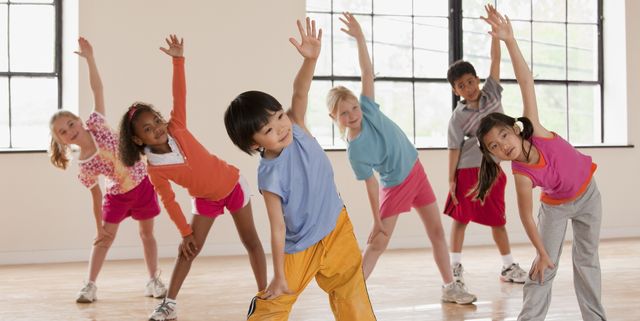At Rising Stride, we believe in nurturing the growth and development of your little ones, not only through education but also through physical activity. We understand that our preschoolers are at a crucial stage of development, and one of the key elements in their holistic growth is engagement in physical activity. In this blog, we want to emphasize the importance of encouraging your children to get active and explore the world around them.
Regular physical activity also helps young children:
- Build endurance and develop strong muscles and bones
- Maintain good sleeping patterns
- Improve fine motor skills including balance, dexterity, and flexibility
- Develop better social skills
- Maintain healthy habits into adulthood
- Form a positive outlook on health, including weight and diet
- Have more confidence in their abilities
- And more!
1. Healthy Habits Begin Early
Instilling a love for physical activity at a young age can set the foundation for a lifetime of health and wellness. Regular exercise helps children maintain a healthy weight, promotes strong bones and muscles, and supports overall physical health. It also plays a significant role in preventing various health issues, such as childhood obesity.
2. Improved Self-esteem
When children do a challenging activity, it builds self-confidence. Once a child starts regular physical activity, they will begin to look and feel their best. This will only build a positive body image. As they realize how important physical activity is in their lives, they are less likely to develop future unhealthy eating and exercise habits to obtain the “perfect body image.
3. Cognitive and Emotional Development
Physical activity is not just about keeping the body fit; it also has a profound impact on cognitive and emotional development. Regular physical play enhances a child’s ability to concentrate, think, and learn. It stimulates the brain, helping with memory and problem-solving skills. Furthermore, it can boost a child’s self-esteem and self-confidence, which are essential for their overall emotional well-being.
4. Social Skills and Teamwork
Participating in group physical activities fosters teamwork and social skills. It teaches children how to interact with their peers, share, and communicate effectively. This early exposure to collaboration sets a strong foundation for their future relationships, both in and out of the classroom.
5. Unleash Creativity
Physical activities encourage children to be creative. Whether it’s building with blocks, creating art projects, or simply playing in the sand, these activities stimulate imagination and creativity. By engaging in active play, children learn to see the world through a different lens, fostering an innovative spirit that will serve them well throughout their lives.
6. Mental and Social Wellbeing
Physical activity is an important factor in regulating mental and emotional well-being. Children who exercise regularly are often better able to focus at school and have improved cognitive function. Exercise triggers the release of feel-good endorphins, like serotonin, in the brain. This can help to reduce stress and lower the risk of depression and anxiety. Additionally, exercise is a wonderful opportunity for children with disabilities to build social connections. By engaging with other children in an athletic capacity, children can develop strong friendships, which is helpful in improving confidence and reducing feelings of loneliness and social isolation.
7. Make Exercise Fun
Every child will have their own preference for what physical activities they think are fun, so it’s important to talk with them to learn what activities they enjoy doing most. This will allow you to incorporate their interests into their active playtime so they can start building a positive relationship to being active and healthy.
8. Better Sleep and Stress Relief
Active children tend to have better sleep patterns. Physical activity can help them fall asleep faster and enjoy more restful nights, leading to better overall behavior during the day. Additionally, engaging in physical activities can be a wonderful way for your child to release pent-up energy and reduce stress.
9. Outdoor Exploration
At Rising Stride, we encourage outdoor play as much as possible. Exposure to the natural world helps children develop an appreciation for nature and a sense of wonder. Outdoor activities offer a unique sensory experience that indoor play cannot replicate. Whether it’s feeling the texture of leaves, watching birds, or splashing in puddles, nature offers endless opportunities for learning and growth.
10. Lifelong Habits
The habits your child forms during their preschool years can influence their choices as they grow older. By making physical activity a regular part of their routine now, you’re helping to establish a positive habit that can last a lifetime. The skills and values they learn through physical activity at a young age will serve them well in the future.
We encourage you, as parents, to take an active role in engaging your children in physical activities outside of school hours. Whether it’s playing in the park, taking a nature walk, building a garden, or participating in sports, the benefits are immeasurable. Your involvement and encouragement can make all the difference in fostering a love for physical activity in your little ones. Let’s work together to ensure that our preschoolers lead active, healthy, and happy lives.
Remember, childhood is a time for exploration, play, and growth, and physical activity is an integral part of this journey.

